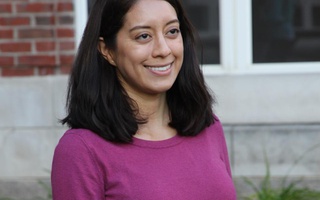The death last week of Harvard Law School Professor Derrick A. Bell Jr. gives us cause to reflect on the issue of faculty diversity, one of the causes Professor Bell championed in his time at Harvard. In terms of both research and teaching, a diverse faculty is more capable of fostering an academic environment that reflects the broad range of human experience. It can provide a source of intellectual role models for an increasingly diverse student body, and, due to the considerable amount of public influence Harvard professors wield, a more diverse faculty not only enhances the University’s intellectual environment, but can also influence and improve society in general.
While it’s true that the number of female and minority faculty has been increasing consistently since the office of Faculty Development & Diversity began tracking faculty demographics in 2003, these groups still represent a startlingly low percentage of the professorships. Although women make up an insufficient 25 percent of the Harvard faculty, blacks and Latinos each compose a mere three percent. Harvard ought to seek out distinguished scholars of these groups so that our faculty can reflect the diversity of amazing intellect Surely our intellectual environment would be enriched by a larger presence of women, blacks and Latinos in our research and teaching.
It is our belief and experience that a diverse faculty increases the quality of teaching. Inevitably, a class in literature, history, or anthropology would be informed, in part, by the perspective and identity of the professor. Our learning experience should not be limited by the presence of an overly homogenous faculty. As students, we should be given the opportunity to benefit from diverse perspectives. Additionally, the research produced at Harvard will be similarly enhanced through a greater diversity of experience.
A more diverse faculty would also provide more role models for female, black, and Latino students who comprise a significantly larger portion of the student body than the faculty. It is important for students to see academics of a similar background in prominent positions in Harvard’s scholarly community, so that members of those groups can feel welcome pursuing a career in academia.
To the end of making this increase in faculty diversity possible, Harvard ought to adopt programs that support women and minority faculty members. Such steps might include increased family benefits such as daycare and paternity leave. Harvard ought to ensure that administrative support for a diverse faculty is never lacking. We have faith that Harvard is committed to diversity. It is clear, however, that more needs to be done to diversify the faculty, which now suffers from unfortunately low numbers of women and minorities. Harvard ought to do whatever it can to attract impeccable scholars who represent historically disadvantaged groups.
Read more in Opinion
Taxation and Its MetaphorsRecommended Articles
-
Second-Hand HarvardThere is a constellation of cigarette burns near the right-hand pocket of my new winter coat. Someone has reaffixed its
-
COMMENTThe wise course for the Democrats is plain. They must in the first place, nominate a man of much greater
-
The Varieties of Moral ExperienceAtheists should not pretend as though they do not inherently take a leap of faith from "is" to "ought."
-
 Valiendo la Pena: Latino Students and the Struggle for Space
Valiendo la Pena: Latino Students and the Struggle for Space -
Not Just ImmigrationMembers of the Grand Old Party have offered different solutions for how this demographic change can be accommodated.
-
 Harvard Eyes Internal, External Models for Capital Campaign
Harvard Eyes Internal, External Models for Capital Campaign













